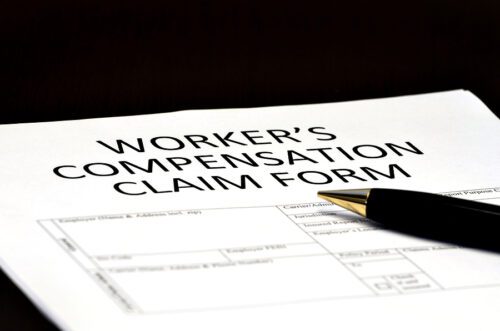
How Will My Workers’ Compensation Injury Impact My Social Security Disability Claim?
If you have been injured at work and your injury resulted in a long-term disability, you may be eligible for both workers’ compensation and Social Security Disability Insurance (SSDI) benefits.
Receiving workers’ compensation benefits may offset the benefits you receive from Social Security. If you are paid worker’s compensation, then you must report that payment to Social Security. There may be an offset of the two benefits paid during the same period of time.
It’s important to understand the interaction between these two programs. If you are eligible to receive benefits, it can help to consult with an experienced, local SSDI attorney.

Understanding Workers’ Compensation
Workers’ compensation insurance is there to protect employees if they are injured on the job. Workers’ compensation covers medical treatments and ongoing medical care resulting from a workplace injury and may include compensation for lost wages, disability benefits, and, in extremely unfortunate circumstances, funeral costs.
In most cases, any job-related illnesses or injuries are eligible for workers’ compensation. The amount of compensation you are entitled to will depend on your average weekly wage (“AWW”). Payments do not start immediately upon missing work. Payments begin after the injured employee has been off of work for more than seven days. If you are not able to work, then you can expect about 72% of your AWW for 12 weeks, then about 66% of your AWW thereafter. The amount of your AWW is calculated from your last 6 weeks of wages. The length of time you can receive benefits depends on a number of factors, and most employees who claim these benefits will need an Impairment Rating Evaluation after two full years of receiving workers’ compensation benefits.
Social Security Disability Benefits Explained
The Social Security Administration defines disability for an adult as unable to engage in any substantial gainful activity (“SGA”) because of a medical or physical impairment that is or is expected to last for a continuous period of at least 12 months; or expected to result in death.
The Social Security Disability application process may have up to 5 levels.
An attorney can support your claim by gathering medical evidence and submitting it to Social Security.
Estimating your benefit amount can be complicated, and will be determined by your earnings record, income history, and work credits. In 2023, the maximum amount you can receive is $3,627/month, but most recipients receive much less, averaging $1,300/month.
Interaction Between Workers’ Compensation and SSDI
If you are disabled as a result of a job-related injury, then you will may be eligible for both SSDI and workers’ compensation, which when combined, can help support you while you are disabled and recovering. However, there is a potential impact of receiving workers’ compensation benefits while on SSDI. There are offset rules and limitations to how much you can receive in total benefits between the two programs.
The most significant impact is the potential reduction in your SSDI benefits due to a process called “offset”. When you receive both workers’ compensation and SSDI benefits, the combined amount cannot exceed a certain percentage of your average current earnings. The SSA (Social Security Administration) calculates the offset based on a formula, and this formula may vary from year to year. Typically, the total benefit from both programs cannot exceed 80% of your average current earnings before you became disabled. As a result, if your workers’ compensation benefits are substantial (for example, if you are receiving 60% of your average weekly wages for total disability), your SSDI benefits may be reduced to 20% of your average weekly wages to ensure compliance with the offset rules.
In many cases, qualifying for one set of benefits may help you qualify for the other. The medical criteria for qualifying for SSDI benefits involve evaluating the severity of your disability. The SSA will consider whether your condition meets the listed impairments in the “Blue Book”. If you qualify for workers’ compensation due to a listed impairment, it will likely strengthen your SSDI claim as it demonstrates the severity of your condition. But, it is a piece of evidence, not a guarantee of your disability benefit being approved.
Reporting Changes
No matter if you qualify for one or both benefits, it’s essential to keep the SSA and your workers’ compensation provider informed of any changes in your status, no matter what the changes are. Changes in workers’ compensation benefits or your medical condition can impact your SSDI benefits. For example, if your workers’ compensation benefits increase due to a changed medical prognosis, and you do not inform the SSA, your total benefit payouts may exceed the offset of 80%, putting you out of compliance and risking your eligibility for SSDI benefits altogether. In addition, failing to report changes promptly can lead to overpayments, which you may then need to repay to the SSA.
Maximizing your Benefits
In most cases, if you have been severely injured on the job and it results in a disability that will impair your ability to work for a year or more, you will be eligible for both workers’ compensation benefits and SSDI. Since SSDI benefits require a substantial amount of medical documentation, you will likely already have the documents you need to file for workers’ compensation. If you’ve been injured on the job and do not expect to be able to work for at least 12 months, it may make sense to maximize your benefits with both programs.
When you are trying to maximize your benefits while staying within the law, legal counsel is your best bet to ensure that you are not making any costly mistakes that can jeopardize your benefits. When you are facing a hardship like this, having an experienced SSDI attorney can help you navigate the system, successfully manage the paperwork, and handle any resolutions you may need to deal with.
Contact Arthur Law Firm Right Away
If you’ve been seriously injured on the job and you won’t be able to return to work, contact Arthur Law Firm (419) 782-9881 right away for a free consultation to discuss the details of your case. We can help you navigate the system, handle the paperwork, and provide invaluable assistance during this challenging time. Remember, your well-being and financial security are paramount, and seeking the right legal guidance can make all the difference in receiving the financial support you need to fully recover.